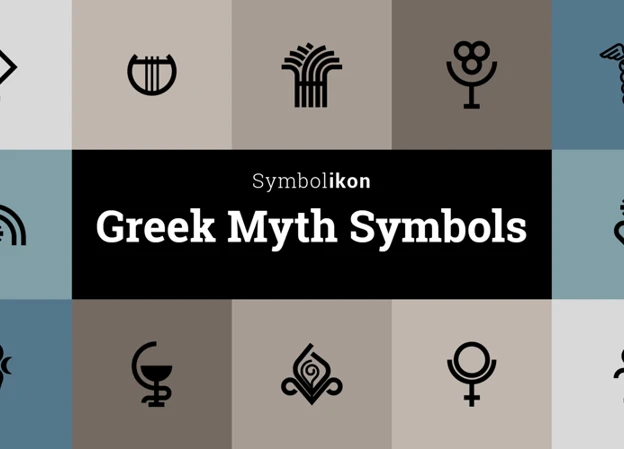Ancient Greek Myths and Their Astrological Significance: Unveiling the Celestial Connections
Step into the mesmerizing world of Ancient Greece, where gods and goddesses reigned supreme, and celestial bodies held profound meanings. In this captivating article, we explore the intriguing relationship between Greek myths and astrology. Delve into the rich tapestry of ancient lore as we uncover the hidden astrological connections behind iconic deities like Zeus, Apollo, Athena, and Aphrodite. Discover how Greek heroes such as Hercules, Perseus, Odysseus, and Achilles were influenced by the planets and Zodiac signs, and how their mythological adventures correlate with astrological interpretations. Embark on this celestial journey with us as we unravel the mystique and unveil the profound astrological significance within the ancient Greek pantheon.
Contents
- Astrology in Ancient Greece
- Ancient Greek Myths and their Astrological Connections
- Astrological Interpretations of Greek Heroes
- The Influence of Planets and Zodiac Signs in Greek Myths
- Conclusion
-
Frequently Asked Questions
- 1. How did astrology influence daily life in Ancient Greece?
- 2. What role did astrology play in Greek mythology?
- 3. Which Greek gods were closely associated with astrology?
- 4. How did astrology impact Greek philosophy?
- 5. Were there specific astrological rituals or practices in Ancient Greece?
- 6. How did astrology influence Greek medicine?
- 7. Did astrology have a role in Greek warfare?
- 8. Were there different astrological systems in Ancient Greece?
- 9. How were Greek heroes influenced by astrology?
- 10. Is there a lasting influence of Greek astrology today?
- References
-
Frequently Asked Questions
- 1. Can astrology be traced back to ancient Greece?
- 2. Which ancient Greek god ruled over the heavens?
- 3. How did astrology influence ancient Greek mythology?
- 4. Who was the sun god in ancient Greek mythology?
- 5. Which Greek goddess represented wisdom and strategy?
- 6. Who was the goddess of love and beauty in ancient Greece?
- 7. Which Greek hero symbolized the heroic journey?
- 8. Who was the clever hero in Greek mythology?
- 9. Which Greek hero was known for his resourceful nature?
- 10. Which zodiac sign was associated with the courageous warrior?
- References
- Read More
Astrology in Ancient Greece
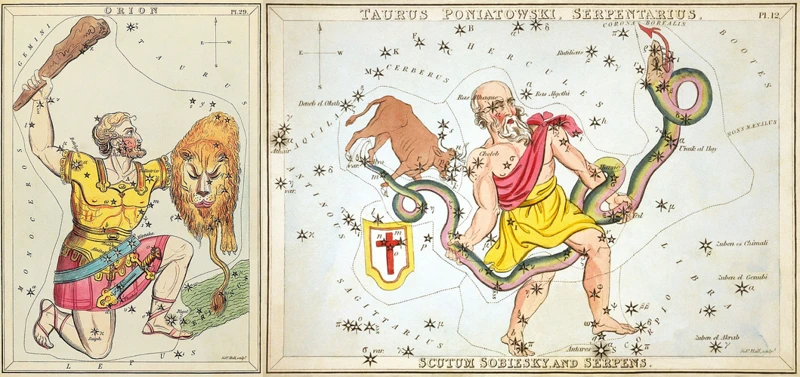
Astrology in Ancient Greece held immense significance and played a pivotal role in shaping the beliefs and practices of the civilization. The Greeks attributed great importance to the celestial bodies, considering them divine entities that held sway over human affairs. They believed that the positions and movements of the planets and stars could offer insights into a person’s character, destiny, and even their relationship with the gods. Drawing inspiration from Mesopotamian astrology, the Greeks developed their own unique system, incorporating their pantheon of gods and goddesses. Astrology was deeply intertwined with various aspects of Greek life, from politics and warfare to medicine and philosophy. Esteemed philosophers like Plato and Aristotle explored the connection between celestial bodies and human existence, delving into the cosmic influences on human behavior and the significance of astrological alignments. The Greeks developed intricate astrological charts and systems to map out the cosmos and interpret the mysteries of the heavens. Astrologers were consulted for guidance in important decisions, predicting the outcomes of battles, determining auspicious times for events, and even advising on matters of love and marriage. The enduring legacy of Greek astrology can be seen in the continued fascination with the zodiac signs and the widespread popularity of horoscopes today. Exploring the depths of astrology in Ancient Greece gives us a fascinating glimpse into a civilization that thrived on the cosmic connections between the earthly and celestial realms.
Ancient Greek Myths and their Astrological Connections
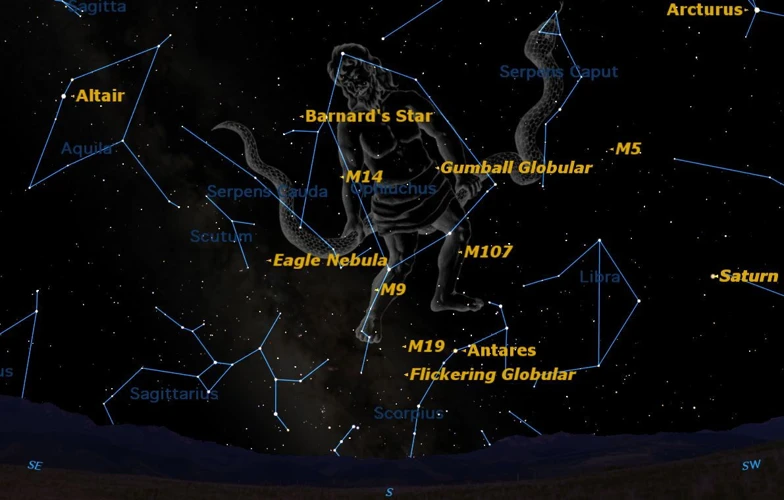
Greek mythology is a treasure trove of captivating tales interwoven with astrological connections. The ancient Greeks believed that their gods and goddesses held a celestial role, each associated with specific planets and zodiac signs. These connections not only added depth to the myths but also served as symbols of cosmic forces influencing human existence. Zeus, the ruling god of the heavens, was tied to the planet Jupiter, reflecting his power and authority. Apollo, the sun god and patron of arts, embodied the radiance and creativity associated with the sun. Athena, the wise and strategic goddess, resonated with the logical and strategic traits of her zodiac sign, Virgo. Aphrodite, the goddess of love and beauty, embodied the allure and passion attributed to the planet Venus. Each mythological figure and their corresponding astrological connection wove together a rich tapestry of symbolism and meaning, providing further insight into the intricacies of ancient Greek culture and belief systems.
1. Zeus – The Ruling God of the Heavens
Zeus, the mighty ruler of the heavens in Greek mythology, held a prominent place in both the pantheon of gods and the study of astrology. Represented as the god of thunder and lightning, he symbolized power and authority. In astrology, Zeus is often associated with the Sun, representing the vital life force and leadership. As the ruler of the celestial realm, Zeus governed over the other gods and played a pivotal role in shaping the course of human affairs. His influence extended beyond the heavens and into the mortal world. Those born under the sign of Zeus, often correlated with Leo, exhibit qualities of leadership, courage, and a strong presence. Just as Zeus commanded awe and respect in the heavens, individuals influenced by his energy possess natural charisma and the ability to inspire others. The connection between Zeus and the Sun highlights the vital connection between self-expression, personal power, and the divine. Understanding the astrological significance of Zeus allows us to delve deeper into the realms of leadership, self-confidence, and the radiant energy symbolized by the Sun. Link to Understanding the Strengths of Ophiuchus: A Deep Dive into Personality Traits.
2. Apollo – The Sun God and Patron of Arts
In Greek mythology, Apollo was revered as the radiant Sun God and the embodiment of enlightenment, creativity, and artistic expression. As the son of Zeus and Leto, Apollo’s celestial chariot traversed the sky, bringing light and warmth to the world. Renowned for his exceptional musical talent, Apollo was often depicted playing the lyre, a symbol of his mastery over melody and harmony. As the Patron of Arts, he inspired poets, musicians, and artists, bestowing them with creative inspiration and guidance. Apollo’s influence extended beyond the realms of music and arts; he was also associated with healing, known as the god of medicine. The Oracle of Delphi, a sanctuary dedicated to Apollo, was renowned throughout ancient Greece as a place of prophecy and wisdom. Seekers of counsel would travel far and wide to consult the oracle, who acted as a conduit for Apollo’s divine messages. Apollo’s worship was intertwined with the Greek cultural identity, with magnificent temples erected in his honor, such as the iconic Temple of Apollo at Delphi. The radiant and multifaceted nature of Apollo exemplified the Greeks’ reverence for the intertwining forces of the sun, creativity, and healing, making him a revered and indispensable deity in their pantheon. Through the divinity of Apollo, the Greeks revered the power of artistic expression and recognized the profound impact of creativity on the human experience.
Sources:
– The Magical Arts in Ancient Greece by F. Graf
– Greek Mythology: From the Iliad to the Fall of the Last Tyrant by R. Macgregor
3. Athena – The Wise and Strategic Goddess
Athena, the wise and strategic goddess, held a prominent place in Greek mythology and astrology. She was often associated with wisdom, intelligence, and strategic warfare. In astrology, Athena is often linked to the zodiac sign of Virgo, reflecting her analytical and practical nature. As the goddess of wisdom, Athena was known for her strategic prowess and ability to devise clever solutions to complex problems. She represented the virtues of rational thinking, cunning, and foresight. Athena’s astrological significance can be seen in the influence she had on individuals born under the sign of Virgo. People born under this sign are believed to possess a keen intellect, attention to detail, and a practical approach to problem-solving. They share Athena’s analytical nature and ability to find innovative solutions. Athena’s connection to the zodiac sign of Virgo highlights the careful planning and meticulousness associated with both the goddess and those born under her sign. As the patron deity of Athens, Athena was highly revered as the guardian of the city. Her wisdom and strategic guidance were sought in times of conflict and decision-making. The Parthenon, a magnificent temple dedicated to Athena, stands as a testament to her enduring influence and significance in Greek culture. By embodying the qualities of wisdom and strategic thinking, Athena resonated with the ancient Greeks, and her astrological connection continues to inspire those who align with the sign of Virgo today.
4. Aphrodite – The Goddess of Love and Beauty
As the captivating goddess of love and beauty, Aphrodite held a prominent place in Greek mythology. Her celestial significance is closely tied to the planet Venus, also known as the evening star. According to Greek beliefs, Aphrodite’s birth was extraordinary, emerging from the sea foam near the coast of Cyprus. Her association with the sea further accentuates her ethereal beauty and allure. Aphrodite’s role in Greek mythology extends far beyond her physical appearance, as she possesses the power to ignite desire, inspire passionate love, and foster harmonious relationships. Her influence is felt not only among mortals but also among the gods themselves. The myth of Aphrodite’s love affair with the god Ares, the embodiment of war and strength, symbolizes the blending of love and passion. She plays a significant role in the tale of the Trojan War, initiating a contest among the gods to determine the most beautiful among them. This competition ultimately led to the renowned myth of the golden apple, which was inscribed with the words “to the fairest.” Through her enchanting presence, Aphrodite weaves an intricate tapestry of desire, romance, and emotional connections. The mythological accounts and symbolism associated with this goddess highlight the profound impact that love and beauty can have on human existence. Aphrodite’s celestial connection and profound influence embody the essence of what it means to experience the transformative power of love.
Astrological Interpretations of Greek Heroes
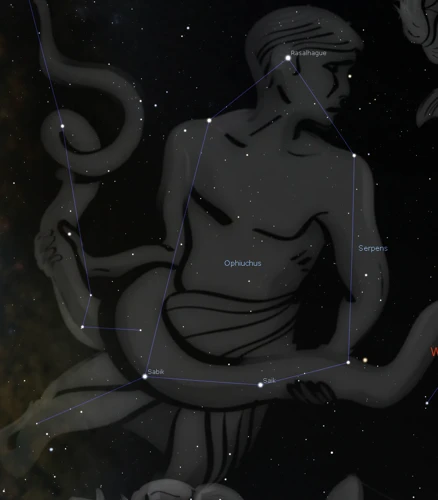
Step into the realm of myth and symbolism as we explore the astrological interpretations of Greek heroes. Each hero, with their unique traits and legendary quests, aligns with specific zodiac signs and embodies the qualities associated with them. Hercules, known for his extraordinary strength and courage, symbolizes the Aries, the sign of heroic journeys and battles. Perseus, the clever and resourceful hero who slayed Medusa, embodies the qualities of Gemini, representing intellect and cunning. The resourceful and adaptable Odysseus, renowned for his adventurous spirit, aligns with the sign of Pisces, embodying the traits of resilience and adaptability. Lastly, Achilles, the brave and fierce warrior of the Trojan War, exemplifies the qualities of Leo, symbolizing courage, leadership, and loyalty. These astrological interpretations offer a fascinating insight into the ancient Greek heroes, deepening our understanding of their mythological significance and the intrinsic connection between astrology and storytelling.
1. Hercules – Aries, the Heroic Journey
Within the realm of Greek mythology, Hercules stands as a symbol of unparalleled strength, courage, and heroic endeavors. As per astrological interpretations, Hercules is associated with the Zodiac sign Aries, embodying the essence of this sign’s characteristics. Aries, represented by the ram, is known for its fearless and pioneering spirit. Hercules, similarly, embarked on numerous extraordinary feats, facing formidable challenges with unwavering determination and bravery. Just like an Aries, Hercules possessed an indomitable will and an unyielding desire to conquer any obstacle that came his way. The correlation between Hercules and Aries is further reflected in their shared themes of initiation and the heroic journey. Aries, being the first sign of the Zodiac, represents beginnings and initiations, and Hercules’ labors can be seen as a series of trials and tests that signify his transformative journey towards becoming a true hero. Hercules epitomizes the Aries archetype, embodying its qualities of leadership, fearlessness, and a relentless pursuit of excellence. This connection between Hercules and Aries not only showcases the interplay between Greek mythology and astrology but also provides us with a deeper understanding of the profound archetypal patterns that have transcended time and continue to shape our understanding of human nature and the heroic ideals we strive for. Whether through the lens of mythology or astrology, the tale of Hercules as the epitome of the Aries spirit captivates and inspires us to embark on our own heroic journeys of self-discovery and triumph.
2. Perseus – Gemini, the Clever Hero
Perseus, the Clever Hero of Greek mythology, is often associated with the zodiac sign Gemini, which complements his resourcefulness and quick thinking. In Greek mythology, Perseus embarked on a perilous quest to slay the monstrous Medusa and save the kingdom of Argos. Gemini, represented by the celestial twins Castor and Pollux, embodies duality and versatility, traits that are evident in Perseus’ character. Like the adaptable Gemini, Perseus displayed cunning and adaptability throughout his journey. One of Perseus’ most renowned feats was using a polished shield to view Medusa’s reflection and avoid her petrifying gaze. This clever tactic showcased his ability to think on his feet, utilizing the tools available to him. Gemini individuals are known for their communicative skills, and Perseus demonstrated this in his encounter with Andromeda. Not only did he save Andromeda from a sea monster, but he also utilized his persuasive abilities to win her hand in marriage. This ability to communicate effectively and negotiate complex situations aligns with the adaptable nature of Gemini. Perseus’ mutable nature is exemplified by his ability to adapt to changing circumstances. When faced with challenges on his quest, he thought quickly and altered his approach accordingly. These qualities of intelligence, adaptability, and quick-wittedness link Perseus closely to the Gemini zodiac sign. Exploring the astrological significance of Perseus enhances our understanding of his character and highlights the intricate relationship between Greek mythology and the celestial influences that shaped their stories.
3. Odysseus – Pisces, the Resourceful Adventurer
Odysseus, the legendary Greek hero of the Trojan War and the protagonist of Homer’s epic poem “The Odyssey,” embodies the traits associated with the zodiac sign Pisces – resourcefulness and adaptability. Just like the symbol of the two fish swimming in opposite directions, Odysseus demonstrated his ability to navigate through complex situations and adapt to ever-changing circumstances. Known for his cunning intelligence, he employed clever strategies and quick thinking to overcome obstacles and outwit his enemies. Similar to the sensitive and empathetic nature of Pisces individuals, Odysseus displayed empathy and compassion towards others, often using his wit to save himself and his companions from dire situations. From his encounters with the Cyclops Polyphemus to facing the temptations of the sirens, Odysseus maintained his resilience and kept his ultimate goal in sight – returning home to his beloved wife Penelope and his kingdom of Ithaca. The journey of Odysseus reflects the perpetual quest for self-discovery and the ability to navigate the tempestuous seas of life, which resonates with the essence of Pisces. If you want to learn more about the enigmatic origins of Mesopotamian mythology, check out our in-depth article on the enigmatic origins of Mesopotamian mythology. Additionally, delve into the psychology of lucky numbers and their impact on our lives by exploring our comprehensive guide on lucky numbers psychology.
4. Achilles – Leo, the Courageous Warrior
In Greek mythology, Achilles is renowned as a legendary hero and warrior of unparalleled bravery. His association with the zodiac sign Leo further enhances his persona as a courageous and dominant figure. Like a lion, Achilles exudes strength, leadership, and bravery in the face of adversity. Just as Leo is a fire sign, Achilles possesses an intense and passionate nature that fuels his heroic exploits. He fearlessly charges into battle, embodying the qualities of a valiant and fierce warrior.
Achilles’ astrological connection to Leo is further emphasized by his powerful presence and regal demeanor. In the Iliad, he is depicted as a charismatic and proud warrior, commanding respect from his allies and striking fear into the hearts of his enemies. Similarly, the lion, a symbol of nobility, majesty, and royal authority, perfectly aligns with Achilles’ commanding presence on the battlefield.
Much like a lion ruling over its pride, Achilles commands a sense of authority and dominance among his comrades. He possesses unwavering self-confidence and demonstrates exceptional leadership skills, guiding his fellow warriors through the chaos of war. His bravery and determination are unparalleled, symbolizing the lion’s unwavering courage and the Leo’s unwavering loyalty.
Achilles’ passionate nature mirrors the fiery nature of the Leo sign. His intense emotions and fierce devotion to his comrades and country propel him to extraordinary feats on the battlefield. However, just like a lion, Achilles also possesses a vulnerable side. He grapples with inner conflicts and embodies the Leo’s characteristic pride, which becomes his tragic flaw.
Achilles’ astrological connection to the Leo sign enhances his portrayal as a mighty and courageous warrior. The alignment between his character traits and the qualities associated with the zodiac sign exemplify the interplay between ancient Greek myths and astrology, providing a deeper understanding of the mythical heroes and their astrological significance.
The Influence of Planets and Zodiac Signs in Greek Myths
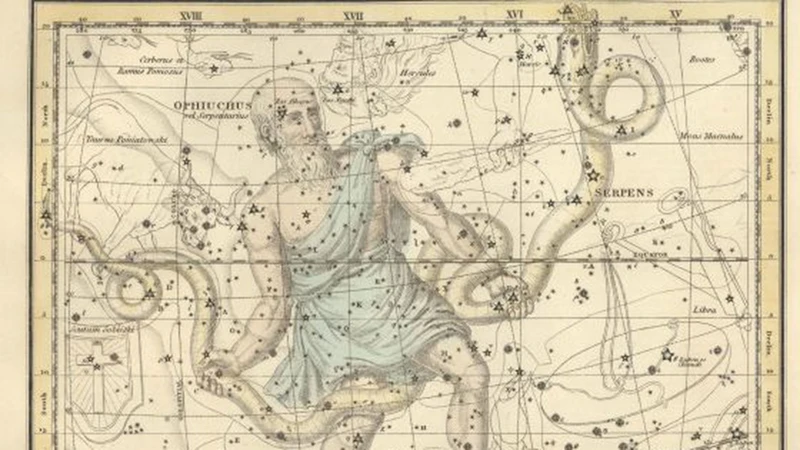
Greek myths are not only captivating tales of gods and heroes but also hold profound connections with the celestial realm. The planets and Zodiac signs played a significant role in shaping these myths, portraying the characteristics and attributes of the gods and heroes they represented. Let’s explore some of the notable examples:
1. Zeus – The ruling god of the heavens was associated with the planet Jupiter, known as Zeus in Greek. Jupiter symbolizes power, expansion, and authority, mirroring Zeus’ dominion over both gods and mortals. His leadership and influence over the pantheon are evident in his association with the largest planet.
2. Apollo – Known as the Sun god and the embodiment of light, Apollo’s connection to the Sun aligns with the astrological significance of the Sun as a symbol of vitality, creativity, and illumination. Apollo’s patronage of the arts and his role as a bringer of harmony resonates with the Sun’s influence on artistic expression and self-expression.
3. Athena – The wise and strategic goddess of wisdom and warfare, Athena, corresponds to the planet Venus. Venus represents love, beauty, and diplomacy, aligning with Athena’s intelligence, beauty, and strategic approach to conflicts. Her ability to navigate nuanced situations and make wise decisions reflects the astrological traits of Venus.
4. Aphrodite – The goddess of love and beauty, Aphrodite, is closely associated with the planet Venus. Aphrodite’s irresistible charm, romantic nature, and allure mirror the influence of Venus, which represents sensuality, attraction, and desire.
These examples highlight the interconnectedness between Greek myths and celestial bodies. The planets and Zodiac signs provide a deeper layer of symbolism and meaning to the stories, allowing us to delve into the astrological influences that shaped the Greek pantheon and their narratives.
Conclusion
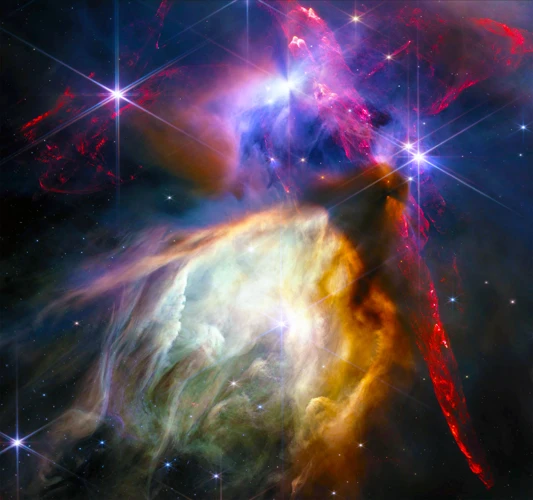
Unraveling the Celestial Tapestry: Discovering the Astrological Significance of Ancient Greek Myths
As we draw near the conclusion of our exploration, it becomes clear that the ancient Greeks embraced the profound interplay between mythology and astrology. The gods and heroes of Greek myths were not merely fictional characters but embodiments of celestial forces, representing the planets and Zodiac signs that guided human existence. Each deity possessed unique qualities and characteristics that aligned with astrological symbolism, revealing profound connections between the earthly and celestial realms. From Zeus, the ruling god of the heavens, to Aphrodite, the goddess of love and beauty, the Greek pantheon was intricately woven into the tapestry of astrology.
Brave heroes such as Hercules, Perseus, Odysseus, and Achilles embodied the archetypal qualities of their respective Zodiac signs, further emphasizing the influence of astrology on Greek mythology. Their journeys and exploits mirrored the traits associated with their astrological counterparts, underscoring the power of cosmic alignment in shaping their destinies.
The planets and Zodiac signs played a pivotal role in Greek myths, impacting the lives and actions of both gods and mortals. The Greeks recognized the potency of these celestial forces in shaping human affairs, seeking guidance and understanding from astrological interpretations. It is through the lens of astrology that the ancient myths take on a new depth and resonance, offering us insight into the profound significance of the stars and planets in the lives of the Greeks.
In conclusion, the astrological connections within ancient Greek myths open a gateway to unravel the mysteries of the cosmos and the human experience. As we delve into the rich tapestry of these myths, we gain a deeper understanding of the celestial influences that shaped the lives, beliefs, and culture of the ancient Greeks. The enduring legacy of astrology in ancient Greece continues to captivate and inspire, reminding us of the enduring bond between the heavens and humanity.
Frequently Asked Questions
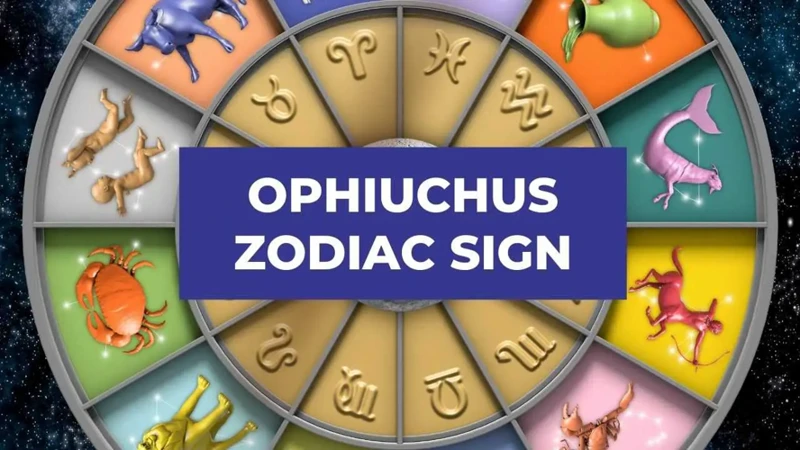
1. How did astrology influence daily life in Ancient Greece?
Astrology was deeply ingrained in the fabric of daily life in Ancient Greece. It guided decision-making processes, offered insights into one’s personality and potential, determined auspicious times for events, and even influenced the interpretation of dreams.
2. What role did astrology play in Greek mythology?
Astrology played a significant role in Greek mythology as it helped explain the interactions between gods and mortals. The positioning of celestial bodies was believed to influence the personalities and actions of the gods, contributing to the development of their mythological stories.
3. Which Greek gods were closely associated with astrology?
Among the Greek gods associated with astrology, Zeus, the ruler of the heavens, held the highest significance. Apollo, the sun god, was also closely connected to astrology, while Athena, the goddess of wisdom, and Aphrodite, the goddess of love, possessed qualities that aligned with certain zodiac signs.
4. How did astrology impact Greek philosophy?
Greek philosophers, such as Plato and Aristotle, explored the relationship between celestial bodies and human existence. They delved into the cosmic influences on human behavior and the profound connection between the celestial and terrestrial realms.
5. Were there specific astrological rituals or practices in Ancient Greece?
Ancient Greeks performed various astrological rituals and practices. Astrologers created detailed birth charts, interpreted celestial omens, and used divination techniques to provide guidance and predictions. Astrological rituals were also conducted during important events and festivals.
6. How did astrology influence Greek medicine?
Astrology had a significant impact on Greek medicine. Physicians believed that the positions of celestial bodies influenced an individual’s health and prescribed treatments accordingly. They aligned medical procedures and remedies with astrological influences to enhance the effectiveness of treatments.
7. Did astrology have a role in Greek warfare?
Astrology played a role in Greek warfare. Astrologers were consulted before battles to predict the outcomes and advise on the most favorable times for victory. The positioning of the stars and planets was believed to influence the success or failure of military endeavors.
8. Were there different astrological systems in Ancient Greece?
Ancient Greece adopted and developed its own unique astrological system, drawing inspiration from Mesopotamian astrology. This system incorporated the Greek pantheon of gods and goddesses, creating a distinct astrological framework that reflected Greek culture and beliefs.
9. How were Greek heroes influenced by astrology?
Greek heroes were often associated with specific zodiac signs, with their epic journeys and characteristics aligning with astrological interpretations. This connection added depth to their mythological stories and emphasized the influence of the celestial realm on human heroes.
10. Is there a lasting influence of Greek astrology today?
Absolutely! The lasting influence of Greek astrology can be seen in the continued fascination with zodiac signs, horoscopes, and the belief that celestial bodies hold insights into human behavior and destiny. Greek astrology laid the foundation for the practice and study of astrology that continues to captivate people worldwide.
References
- What is the connection between Greek mythology and …
- The Signs of the Zodiac and Greek Mythology
- Exploring the Fascinating Similarities Between Greek …
Frequently Asked Questions

1. Can astrology be traced back to ancient Greece?
Astrology has been practiced in different forms since ancient times and can indeed be traced back to ancient Greece. The Greeks believed that the position and movements of celestial bodies held significance in relation to human life and events.
2. Which ancient Greek god ruled over the heavens?
The ruling god of the heavens in ancient Greece was Zeus. As the father of all gods, Zeus was considered the king of the heavens and the wielder of thunder and lightning.
3. How did astrology influence ancient Greek mythology?
Astrology had a significant impact on ancient Greek mythology. The gods and goddesses were often associated with specific planets and zodiac signs, which influenced their characteristics and roles in myths.
4. Who was the sun god in ancient Greek mythology?
Apollo, the son of Zeus and Leto, was the sun god in ancient Greek mythology. He was believed to ride his golden chariot across the sky, providing light and warmth to the world.
5. Which Greek goddess represented wisdom and strategy?
Athena, the daughter of Zeus, was the Greek goddess of wisdom and strategy. She was known for her strategic thinking and was a patron goddess of arts, crafts, and warfare.
6. Who was the goddess of love and beauty in ancient Greece?
Aphrodite, the daughter of Zeus, was the goddess of love and beauty in ancient Greece. She was often depicted as a beautiful and seductive goddess, associated with romance and desire.
7. Which Greek hero symbolized the heroic journey?
Hercules, also known as Heracles, symbolized the heroic journey in Greek mythology. His twelve labors represented the challenges and trials a hero must face on their path to greatness.
8. Who was the clever hero in Greek mythology?
Perseus was considered the clever hero in Greek mythology. He is most well-known for slaying the Gorgon Medusa and using her severed head as a weapon to defeat his enemies.
9. Which Greek hero was known for his resourceful nature?
Odysseus, the protagonist of Homer’s epic poem “The Odyssey,” was known for his resourceful and cunning nature. He used his wit and intelligence to overcome obstacles and return home.
10. Which zodiac sign was associated with the courageous warrior?
Achilles, the legendary hero of the Trojan War, is associated with the zodiac sign Leo. Like a lion, Achilles displayed courage, strength, and ferocity on the battlefield.
References
- Which Greek God/Goddess Aligns With Your Zodiac?
- Myths of the greek Zodiac
- What is the connection between Greek mythology and …
